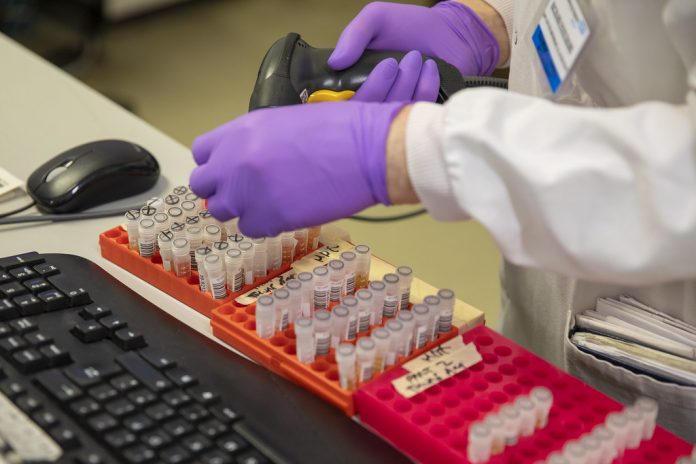South Korea’s handling of the coronavirus epidemic has been acknowledged globally. Even before its first confirmed case of the coronavirus, South Korea had begun to develop Covid-19 tests. Once South Korea had come up with the test, it used a well thought out contact tracing strategy. It identified the travel history of each confirmed case. Details, like the bus stop, where individuals who had been infected with coronavirus had got off, and the seat number of the bus which they had travelled were then posted online (anonymously). The data was posted online with the aim of ensuring that people could know if they had got in touch with anyone who was infected. It would be pertinent to point out that South Korea’s experience in dealing with The Middle East Respiratory Syndrome outbreak (MERS) had stood the East Asian country in good stead.
As of April 18, 2020 the total number of cases in the East Asian country was 10,653 and 232 people had died of the virus (the case load had begun to dip in the hardest hit city of Daegu).
Assistance
It would be important to point out here, South Korea has also provided assistance to a number of countries including the US (South Korea itself had offered to share its experience in dealing with the pandemic). The US President, Donald Trump in a conversation with South Korean President, Moon Jae-in had sought South Korea’s assistance, with testing kits and other equipment. South Korea has also been in touch with African leaders including Ethiopian Prime Minister Abiy Ahmed and has offered to provide assistance in a number of ways. Seoul has already provided test kits to countries like the Philippines and the United Arab Emirates. India too has been importing large number of rapid testing kits from South Korea. The South Indian state of Andhra Pradesh received 100,000 kits on April 18, 2020 with a view to increase testing.
The thumping victory of Moon Jae-in’s Democratic Party in the recent election has been attributed to the efficient handling of the virus. Before the coronavirus crisis, Moon Jae-in was facing a number of challenges both in terms of the economy and foreign policy issues. His approval ratings in 2019 had fallen to 30%, but in late January they jumped up to 57%. The Korean President had come in for severe criticism for his handling of the economy, and the rise in unemployment and his approach towards North Korea also came in for questioning. As a result of the coronavirus, other issues got relegated. The South Korean election results are significant because the Democratic Party won 180 seats out of 300, the largest majority won by any party ever since the country’s transition to democracy over three decades ago.
While in the last few years, the political narrative globally has been dominated by perceptively ‘strong men’ leaders, with strong authoritarian tendencies, who take an anti-globalisation stance – both in terms of economic policies and migration. Moon Jae-in is not muscular by any stretch of imagination, and his style of leadership and approach to political, economic and social issues is very different from that of neighbouring Japan’s Prime Minister Shinzo Abe.
Moon Jae-in’s victory, yet again demolishes the myth of the efficacy of authoritarian systems or democracies led by ‘strong men’ being better placed to deal with such crisis situations.
Message for other leaders
The verdict in South Korea could also provide a template for center-left parties in other parts of the world. The Democrats in the US would be well advised to take heart from this result. While it is true that the Democratic Party was in power in South Korea, a campaign focused on governance and economic issues is likely to be more effective than directing a personal attack on Donald Trump (who likes to play under dog). While it is true that a few months back the November election seemed to be a done deal, as a result of the bickering within the Democrats (still many are apprehensive that Trump supporters may not put their weight behind Biden). Trump’s handling of the coronavirus has left much to be desired, and Joe Biden has seemed calm and re-assured. Given Biden’s administrative experience and acumen, he would be well advised to focus on policy issues and the failures of the Trump administration.
With an increasing thrust on a more pro-active state and welfare economics, there could be much scope for center-left politics. This by no stretch of imagination means insular politics or an anti-globalization sentiment. In a tweet, Richard Haas, the President, Council on Foreign Relations while commenting on the impact of the coronavirus on the political narrative in the west said:
“We may well be moving toward a new paradigm in the West, one of a larger govt role in the economy, the result of a need for stimulus, relief to firms & workers, growing inequality & an inadequate safety net, & the rise of progressivism & the collapse of traditional conservatism”.
In conclusion, South Korea’s handling of the COVID-19 pandemic, along with that of Taiwan’s is a clear reiteration of the point that authoritarian rule is not the answer to a crisis situation. The success of Moon Jae-in in the recent election has many lessons for leaders who may not be strong men but who are efficient and who are effective in their political messaging.
The views and opinions expressed in this article are those of the author.

Tridivesh Singh Maini is a New Delhi based analyst interested in Punjab-Punjab linkages as well as Partition Studies. Maini co-authored ‘Humanity Amidst Insanity: Hope During and After the Indo-Pak Partition’ (New Delhi: UBSPD, 2008) with Tahir Malik and Ali Farooq Malik. He can be reached at [email protected].


